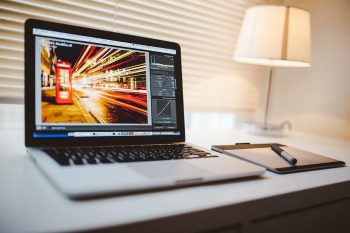We live in a digital age where most homes own a computer and even young kids know how to operate it or even any smart gadget. Most transactions are done online too, and of course, you can’t live without social media and the World Wide Web. They spell convenience to a tee. There are many things you can do online and it has also opened up a world of possibilities for you. While we may have a lot of good things to say for all these tech wonders, they can take its toll on your patience and sanity once something goes wrong and it’s become more sluggish than usual.
 We aren’t all gifted with superhuman knowledge and skills to deal with advanced technology like computing. However, you don’t need to be a genius to learn how to make your PC work faster so you spend less time getting frustrated as your PC buffers and your work drags on because of these minor life inconveniences.
We aren’t all gifted with superhuman knowledge and skills to deal with advanced technology like computing. However, you don’t need to be a genius to learn how to make your PC work faster so you spend less time getting frustrated as your PC buffers and your work drags on because of these minor life inconveniences.
Most of the time, a PC slows down because of your Internet connection, a full memory or even hard drive issues. And it’s common knowledge that it takes a PC longer to start up when it’s already full of files. Fortunately, you don’t need to spend a fortune to make your PC work for you and not the other way around.
Inevitably your computer slows down. You try to open a website and it grinds to a halt, or read an email and it churns along sluggishly. A slow computer, in many ways, is worse than a broken one — or at least infinitely more frustrating.
If you’re going to have any chance of reversing the serious slowdown that’s affected your computer, you’re going to have to work out what’s at the root cause of the sluggishness. Don your detective’s hat and identify the source of the problem with the help of these tools and tricks.
(Via: https://www.gizmodo.com.au/2017/05/how-to-figure-out-whats-slowing-your-computer-down/)
You may not like it when it happens but over time, PCs also suffer from wear and tear and will not likely function like it used to. Among the first signs to watch out for is a PC that is slowing down. Why it slows down can be because of a variety of reasons but there are ways on how to overcome this minor setback in your computing experience.
Get rid of start-up programs
Part of the reason why well-used PCs take so long to start is because of all the applications and utilities you’ve installed. Many automatically run when Windows starts up, yet most of them don’t need to and should only use up resources when you actually need to use them.
At the right side of the taskbar, click the upwards-facing arrow to display the notification icons. Each is a program that loads with Windows. Some are essential – antivirus software for example – but others may not be. Right-click each one and if there is a Settings menu, select it and turn off the option to start automatically with Windows. Some programs, such as Google Drive, can be manually started when they are needed instead of running all the time.
To disable all the other programs and ‘helpers’ apps which start with Windows, press Windows+R and type msconfig and click Ok. Select the Services tab, tick ‘Hide all Microsoft services’ and see what’s left. There may be services you can live without and clearing the tick box prevents them from running. For example, Firefox works perfectly well without the Mozilla Maintenance Service.
(Via: http://www.techadvisor.co.uk/how-to/desktop-pc/how-speed-up-windows-fix-slow-pc-3502902/)
A host of other issues can also be the possible culprit as to why your PC takes longer to start or load. It can be because of malware or other tech nasties and viruses and apps that aren’t updated that slows down your gadget. Aside from the tip mentioned above, there are other ways you can boost your PC’s speed like reinstalling Windows for Windows PC, taming the visual effects, updating drivers and apps, freeing up disk space, installing a faster software and upgrading your computer’s hardware.
